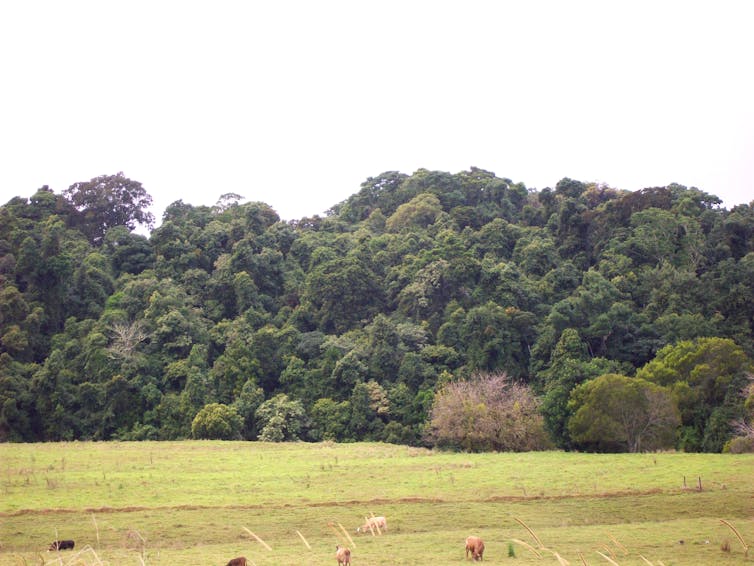Australia’s free trade agreements have helped Queensland business Alchemy Cordial to find new markets for its cordials and syrups. Exports now comprise 15 per cent of the company’s turnover.
In 1997, the only place you could find Alchemy Cordial’s products was at food markets. Today, the company’s syrups and cordials can be found in cafes, restaurants, bars, delicatessans and supermarkets across Australia.
Known for their natural flavour and use of high-quality ingredients, Alchemy Cordial’s beverages are now winning new fans around the world. The family-owned company exports to Canada, China, Fiji, Japan, Mexico, New Zealand, Singapore, the UK, the US and Vietnam.
Up until 2014, Alchemy Cordial was what Managing Director Malcolm Lack describes as an ‘accidental’ exporter. The company would receive an enquiry, make a deal and send products to the customer. Repeat business was irregular and unprofitable, or simply non-existent.
One morning, Lack woke up and decided it was time to ‘put some energy into the US or the UK that have bigger populations than Australia and see what happens. I mentioned it at the sales meeting that same morning and a week later, my salespeople came back with all these leads!’
FTAs ease market entry
Lack worked with a TradeStart representative to develop a table that compared tariffs across the overseas markets, including those markets where Australia had a free trade agreement and where the company did business or was interested in exploring.
‘For example, we signed a new customer in Canada recently, and we found out that under the Comprehensive and Progressive Agreement for Trans-Pacific Partnership (CPTPP), the base tariff of 10.5 per cent on our exported products had been eliminated on entry into force. Our products are now more competitive than ever for our Canadian customer,’ says Lack.
Free trade agreements have also enabled Alchemy Cordial to reignite business relationships. For instance, under the ASEAN-Australia-New Zealand Free Trade Agreement (AANZFTA), the 15 per cent tariff on Alchemy Cordial’s products exported to Vietnam has been eliminated since 2018.
‘We uncovered quite a lot with the FTA comparison exercise,’ says Lack. ‘We were able to go back to existing clients and encourage them to purchase more from Australia due to our products being more competitive than ever’.
‘They also have the option of channelling these savings into marketing to increase sales, or reinvest in the business.
‘Exports made up 3 per cent of our turnover when we were “accidentally” exporting; by being proactive and using FTAs, exports now make up 15 per cent of our turnover,’ says Lack.
Do your due diligence
Alchemy Cordial’s early export success caught Lack by surprise, and the company initially struggled to meet orders because it was simply not prepared.
‘If I had my time again, we would have been more strategic about exporting,’ says Lack. ‘We would have built the infrastructure, systems and knowledge ahead of time, and skilled up my staff. You can’t neglect your domestic market either; it’s not one or the other, you need to pay attention to both.’
Lack also advises exporters to do their due diligence before entering a market.
‘There’s a lot of qualification that needs to be done because not all of them are profitable,’ he says. ‘We have quite an expensive product, so we’ve got to make sure the demography of these countries can also deal with the price that comes with it.’
Take the time to build relationships
When Alchemy Cordial first started exporting, Lack said he encountered many requests from potential partners for exclusivity rights. He advises against rushing into such an arrangement.
‘You meet someone and they say “We’d love to distribute your product but can we have exclusive rights to the US” or to Korea or whichever market it is. Well, no, you can’t,’ says Lack.
‘You’ve got to qualify the people that you want to partner with and make sure they share your beliefs and share the way that you do business. You’ve got to make sure they’re honourable.
‘So it’s better to just trade for a while and get to know each other, and see if you are a good business fit before committing to a long-term arrangement,’ says Lack.
Put the right people in place
Lack advises exporters to ensure they have strong operating procedures in place and the right people overseeing and completing those procedures.
‘We don’t have a dedicated export manager for China, and in the past we had three or four different people doing the certifications,’ he says. ‘All these people referred to us differently, so we ended up with four certificates with a different company name on each. We quickly made a process change and now we have one person who is responsible for all our documentation.’
Exporters should also consider how they will overcome the language barrier.
‘Our food tech employee speaks fluent Mandarin, so that makes it easier for us to work with Chinese partners,’ says Lack. ‘Having people you trust on your side that can help you negotiate language and cultural differences is vital.’
To learn more about Australia’s FTAs, visit .
About Austrade
The Australian Trade and Investment Commission – Austrade – contributes to Australia’s economic prosperity by helping Australian businesses, education institutions, tourism operators, governments and citizens as they:
- develop international markets
- win productive foreign direct investment
- promote international education
- strengthen Australia’s tourism industry
- seek consular and passport services








